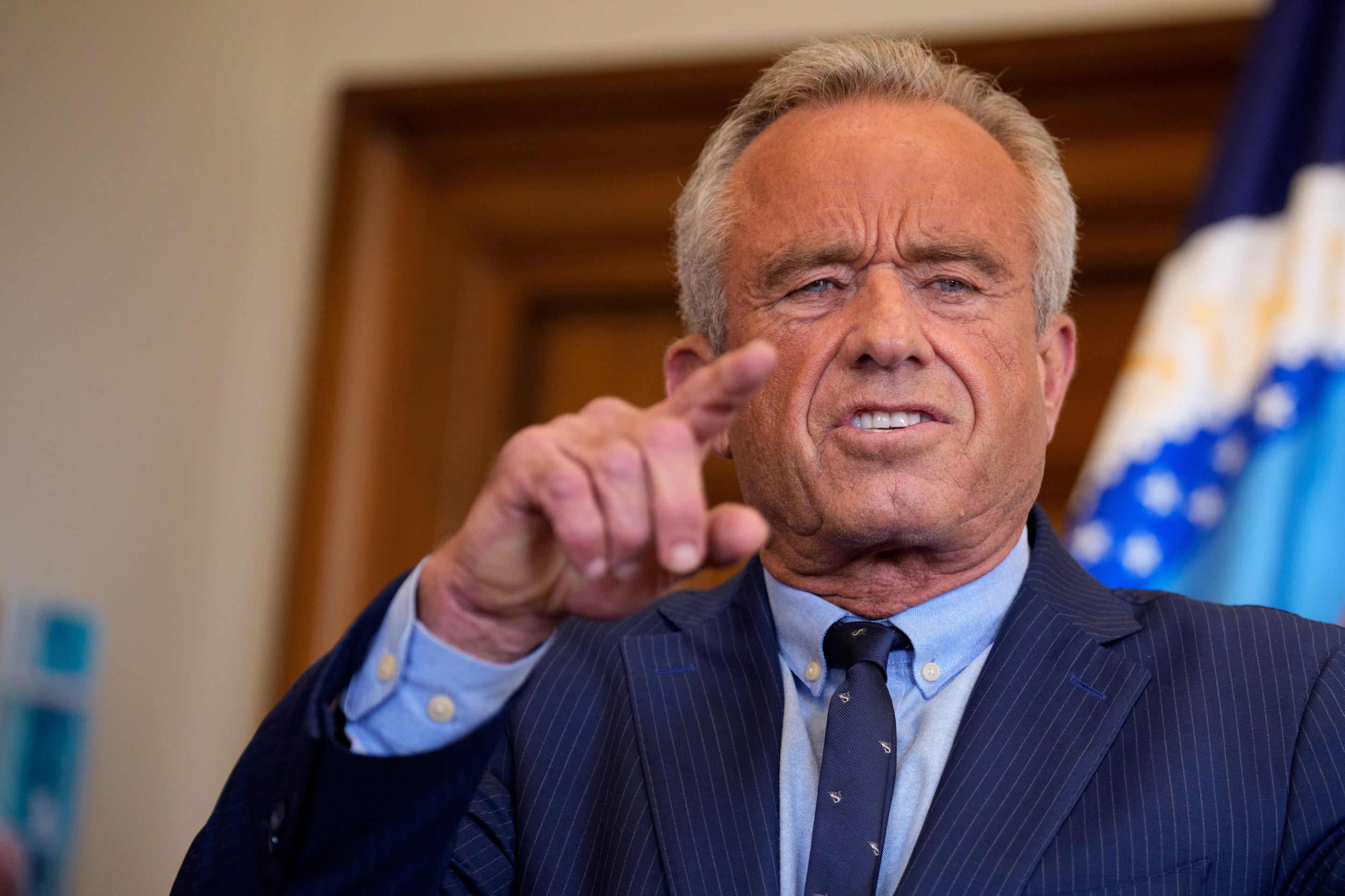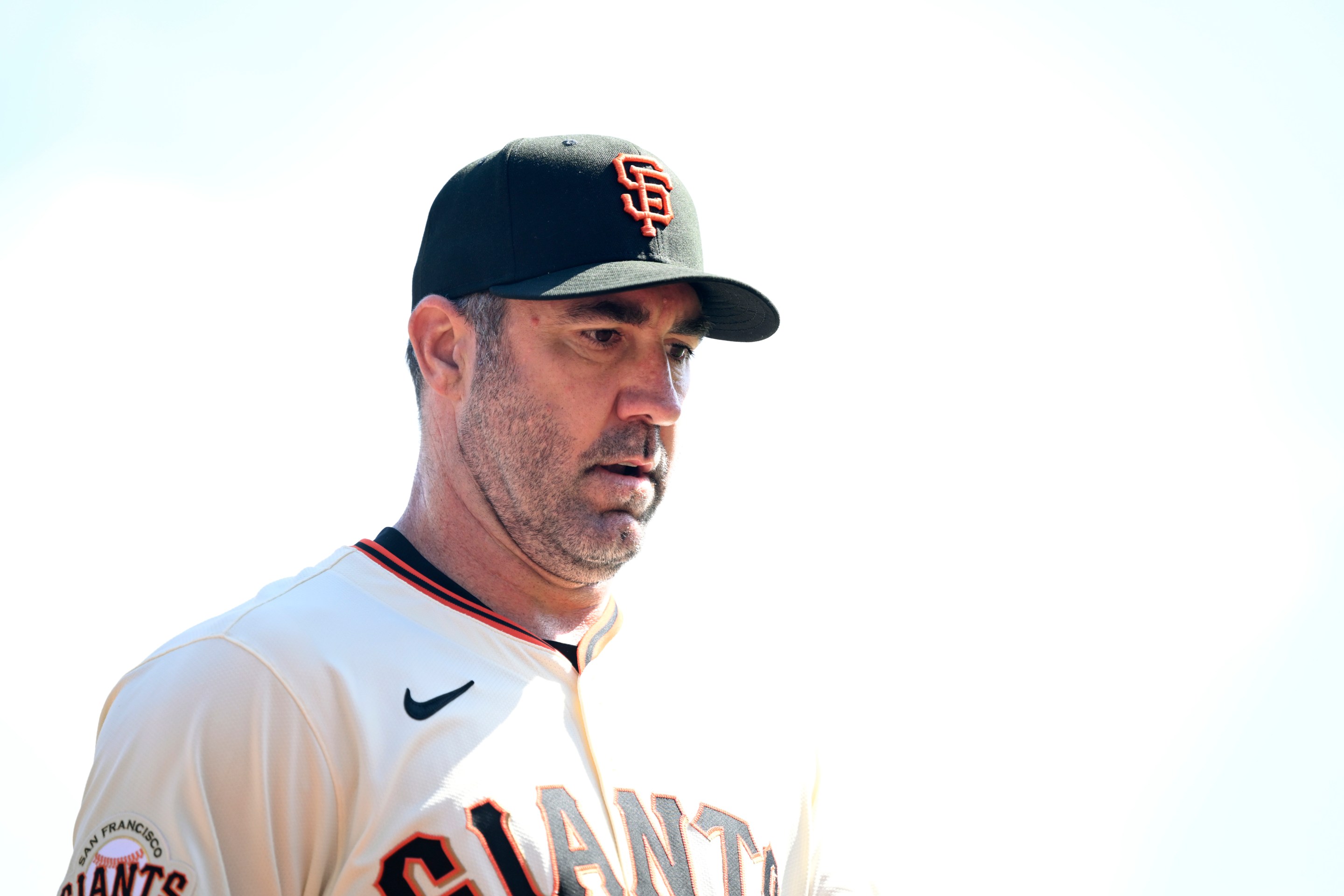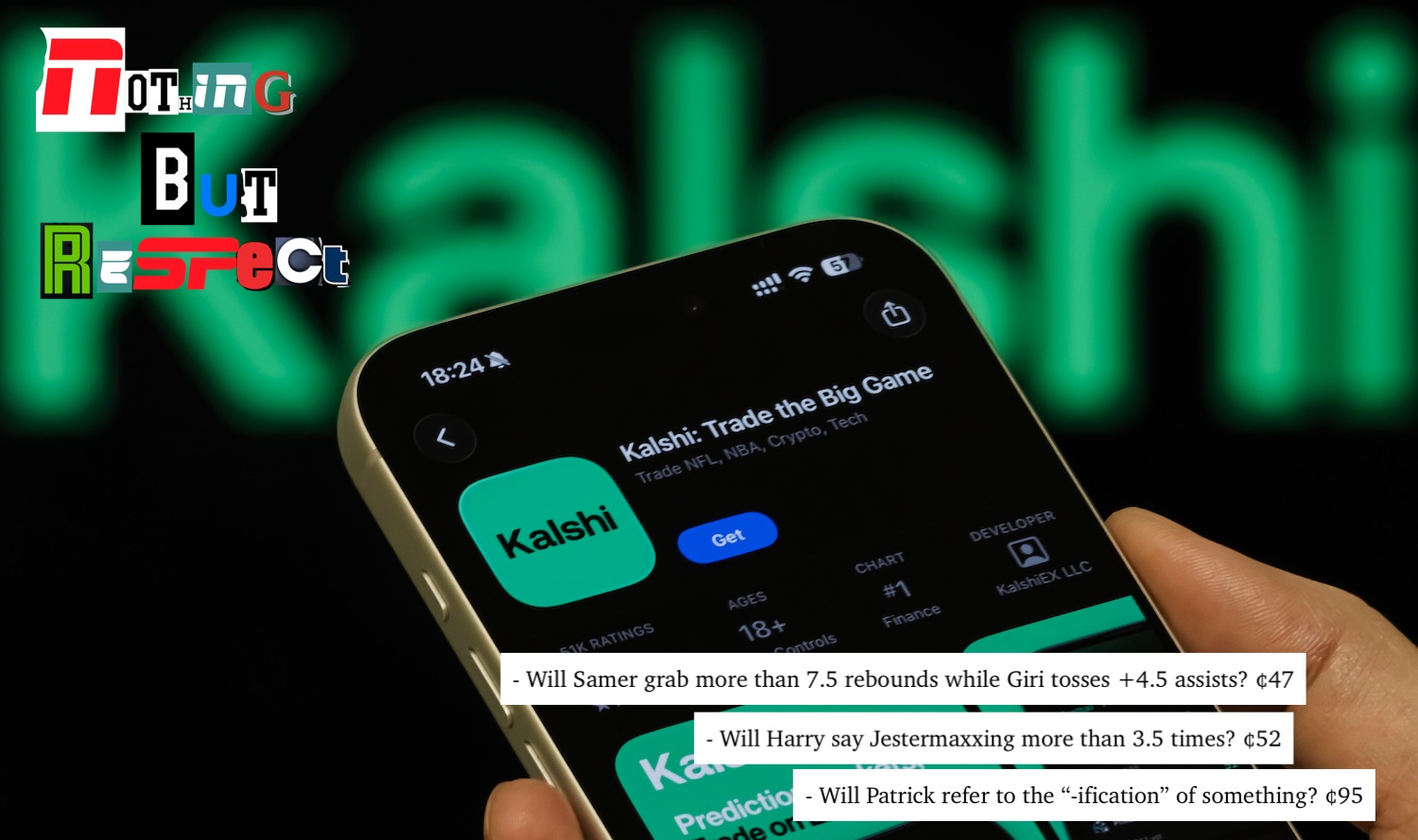When it comes to my daughter, I try to live in the moment. I stumbled into this paradigm in March of 2023, when Nora was diagnosed with autism spectrum disorder at the age of 2. Nora is 4 now—a fiery, intelligent young lady who leads her classmates in preschool group activities and directs mommy to the car whenever they are lost in the parking lot—but she still doesn’t speak. On a short enough timeline, that’s perfectly fine; we don’t need to speak to enjoy an hour at the park or share an ice cream cone. Nora is happy. She is healthy. Everything is all right.
Still, being a parent is a worrying thing, and there are fears that never really go away. What if she never speaks? What if she can’t take care of herself after my wife and I are gone? Lately, this fear has assumed a distressingly hued human form, one frequently seen getting upset in front of Congress and making rounds on the cable news circuit. Health and Human Services Secretary Robert F. Kennedy Jr. will talk to, or at, anyone; like many of the content creators Donald Trump has appointed in his second term, he seems to understand that to be his job. But when it comes to autism, it feels as if he is speaking directly to me.
Kennedy has big thoughts about my daughter’s condition. He made some of those thoughts clear in an April 17 press conference:
“Autism destroys families. More importantly, it destroys our greatest resource, which are our children. These are children who should not be suffering like this...and these are kids who will never pay taxes, they’ll never hold a job, they’ll never play baseball, they’ll never write a poem, they’ll never go out on a date. Many of them will never use a toilet unassisted.”
We—my family, but also you and everyone else—have been forced to pay attention to Kennedy’s opinions first because he’s a Kennedy, and then because it is apparently rude to dismiss well-financed crackpots, and now because he won Congressional appointment to his job atop the most powerful medical organization in human history. It is preposterous and real, and I must admit that it’s haunting to hear some of my own deepest fears about my child’s future echoed by a prominent government official. In that uncanny voice of his, Kennedy is the monster casting corny 10th-grade rhetoric and barely veiled threats at me from under the bed: Your daughter is not normal. She’ll never be normal.
A compassionate person probably would have followed up such a harsh assessment of autistic children, who are among other things human beings, with some sort of plan to help them live the best lives they can. Instead, all Kennedy offered in his speech was more talk about finding the cause of the “autism epidemic.” The idea is very plainly not to help these kids, but to use their existence to scare future parents: Don’t let this catastrophe ruin your child.
Kennedy’s statements on autism tend to create a backlash. This is because he doesn’t really know or care at all about autism, which is borne out through his claims that it is an epidemic (it isn’t a disease) and accusations that there has been a lack of transparency in autism research leading up to this point (there really hasn’t). Outside the field of study and the practice of care is crass politics, and that is the lens through which Kennedy approaches autism—less as a public health reality, or even a campaign issue, and more as a fight that’s both highly personal and jarringly de-personalized. The lines have been drawn, with Kennedy and his ilk on one side and most of the scientific community on the other; families like mine are left to wander the field of a very unnecessary battle.
Kennedy claims he is picking this fight for our sake: “We’re pulling back the curtain—with full transparency and accountability—to deliver the honest answers families have waited far too long to hear.” But even if my family believed that decades of scientific consensus on the genetic links to autism were all part of grand conspiracy on behalf of Big Vaccine, and even if literally Robert F. Kennedy Jr. was the only one brave enough to pull back the curtain and show us the true cause of autism, even then—how exactly would that help Nora, now or in the future? She already has autism. She will have it for the rest of her life. We don’t need answers, bullshit or otherwise. We just need help.
Kennedy hasn’t been very forthcoming on how he intends to help people currently on the spectrum. He rarely if ever mentions autism support in speeches, though his press secretary will occasionally rush out a blanket statement in his name after the fact. In the National Institutes of Health (NIH) news release announcing their controversial national autism registry, Director Dr. Jay Bhattacharya paid lip service to ultimately delivering superior health outcomes while once again labeling autism a chronic disease.
Here and elsewhere, Kennedy has been quick to urge parents to “do their own research.” He’s usually referring to vaccines with that particular line, but with details on the Trump administration’s autism care plan currently hard to come by, parents like me have no choice but to take that advice and try to cobble together our own research wherever they can find it. Of course, telling the parents of special needs children to “do their own research” re: “their child’s healthcare” in the year 2025 AD is not only absurd, but deeply cruel. This might be the most important decision we will ever make for our children. Can we really rely on the decaying corpse of Google search, or weirdly racist AI chat programs, to deliver us the right answers? Should we entrust our child’s development to the ministrations of a health-and-wellness podcaster who just so happens to be hawking his own brand of brain supplements between segments?
But credit where it is due: In the process of doing my own research, I have found even more reasons to be suspicious of Kennedy. While Kennedy has been touting his grand design to “pull back the curtain” on autism by September, the administration in which he serves has been busy smashing America’s medical research capacity. Alana Semuels of Time broke down funding cuts in several government departments that have already kneecapped autism research the administration’s first few months:
- At the NIH, at least two autism grants were cancelled in the adminstration’s anti-DEI purge, one looking at biomarkers of late autism diagnosis in female and gender-diverse people, and another aimed at preventing suicide among autistic adults.
- The Frist Center for Autism and Innovation at Vanderbilt University lost $7.7 million in funding from the National Science Foundation because its grant application included the terms “inclusion” and “accessibility.”
- The Department of Education, a major funder of autism research, has already cancelled numerous autism-related grants and cut funding for the program Charting My Path for Future Success, which helps students with disabilities transition to life after high school.
Meanwhile, the Autism Society of America presented an outline of administration policies that could severely impact autism services in the near future:
“The proposed restructuring of the Department of Health and Human Services (HHS)—including dismantling the Administration for Community Living, which exists to ensure full participation for people with disabilities—signals a dangerous rollback of vital protections. Similarly, the Executive Order to dissolve the Department of Education and transfer all ‘special needs’ programs to HHS threatens the civil rights of students with disabilities and creates uncertainty around enforcement and accountability. On top of this, threatening cuts to Medicaid—a life-saving program—would be devastating to our community. These moves, coupled with sweeping layoffs at HHS, place critical disability laws and services in jeopardy.”
I find this argument to be compelling, especially against the backdrop of blaring static, self-aggrandizing chaos, and incoherence coming from the administration. Is Kennedy’s HHS going to focus on improving autism support? Probably not. Is the broader Trump administration’s campaign of wild and outsized budget cuts going to hurt autism support programs already in place? Almost certainly. They’ve already taken their figurative chainsaw to America’s autism research capability, even as Kennedy poses for photo ops with a literal gold-plated one.
My family is fortunate to have an incredible support system already in place: family and friends, of course, but also therapists, counselors, and teachers. Several of these heroes came to us by way of local government programs in Fairfax County, Virginia. Within months of her diagnosis, we found a therapist through the county’s Infant and Toddler Connection. We were able to enroll her in Preschool Autism Class through the county public school system. The people working with my daughter are trained, experienced, and deeply dedicated. Their presence in her life helps me sleep better at night.
But Fairfax also has one of the highest average housing costs in the country. It isn’t easy to make a living here; we stay mostly for Nora. It would be nice if the mighty U.S. federal government could step up in the way our local government has, and ensure the highest quality of care for autistic people regardless of where they live. It would cost money to hire the credentialed caregivers necessary to make that kind of program work, but money is something the federal government has. It is a matter mostly of priorities, and of will.
And the way that has worked out, we’ve got Robert F. Kennedy Jr. and the fear-based grifter industrial complex he represents in place of the care apparatus we could and should have. His reign at HHS is horrifying to contemplate, and has already been terrible to observe. But it is also kind of pathetic in its own way—a leathery 71-year-old husk of a man addled by vanity and misinformation and fads, the adult failson of an atrophied political dynasty, dealing out tired anecdotes about how you never saw autistic kids back in his day. He’s not going to help my Nora, but he can't halt her progress either. He can’t even comprehend her kind of potential.






